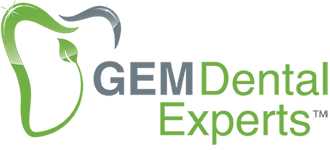
August 28, 2025
by Gabriele Maycher, CEO, GEM Dental Experts Inc. BSc, PID, dip DH, RDH:
-
Most dentists underestimate the real engine of their practice. They chase $30,000 implant, aligner, and cosmetic cases—but the department that fuels long-term revenue, EBITDA uplift, and valuation is hygiene.
That’s the message from my conversation with Gabriele Maycher, a dental hygiene coach, published author, and podcaster. With over 30 years in dentistry and 15 years as a full-time consultant, Gabriele has helped hundreds of practices unlock growth by aligning their hygiene teams to best practices backed by nearly a million clinical hours of periodontal expertise.
The 50% Growth Opportunity
Gabriele’s headline claim, boosting practice revenue by 50% in 90 days through the hygiene department, sounds bold. But it’s rooted in evidence.
Across Canada, research showed that only 14% of practices deliver the standard of care for periodontal disease. Those elite practices produce 50% more revenue and bill 70% more in hygiene than their peers.
The opportunity is clear: the other 86% of practices leave money, growth, and patient outcomes on the table.
Hygiene as the True Sales Engine
Dentists often chase complex restorative cases, but as Gabriele explained, those cases are sold in hygiene. The hygienist is the first to identify disease, breakdown, educate the patient, and frame the need for treatment.
This isn’t about “upselling.” It’s about aligning to evidence-based care:
- 95% of patients have some form of periodontal disease.
- 50% of patients over age 32, and up to 70% over 65, have periodontitis.
- One “prophy” or simple cleaning is rarely sufficient.
By implementing comprehensive oral exams, adequate radiographs, and multi-appointment treatment plans, hygienists deliver measurable health improvements, and create the pathway for restorative dentistry.
Retention: The Silent Profit Centre
Gabriele stressed another overlooked point: staff retention.
Top-tier hygienists who care deeply about outcomes don’t chase higher pay elsewhere. They stay because their professional autonomy, training, and results give them satisfaction. Retaining a clinician not only saves recruitment and onboarding costs, it protects patient continuity and loyalty.
High-performing hygienists become co-clinicians, not employees. They anchor patient relationships, safeguard standards of care, and protect EBITDA margins.
From Clinical to Systemic
Dentistry is no longer isolated to the oral cavity. Periodontal disease has systemic links to cardiovascular disease, diabetes, and inflammatory conditions. Patients are more educated than ever.
That means hygienists are not “cleaning teeth.” They are preserving systemic health. Practices that empower them as such gain not just clinical differentiation, but strategic advantage in the marketplace.
AI as a Force Multiplier
We discussed the role of AI in scaling hygiene departments. Gabriele is already experimenting with:
- Radiographic AI to detect early changes more reliably.
- Documentation AI to streamline compliance.
- Clinical decision support via secure, encrypted AI tools.
AI won’t replace hygienists. It scales their judgment, offloads mundane tasks, and frees them to focus on patient care. For practices, that means less clinician burnout and more productive hours.
The EBITDA Equation
Here’s where hygiene becomes the profit centre:
- Optimising hygiene increases production per hour by ~25%.
- Increasing radiographs and comprehensive exams boosts billing by 30–50%.
- Shifting recall to 50%+ for periodontitis patients multiplies hygiene hours.
The combined effect? $0.5M to $0.8M EBITDA uplift without adding a single new patient.
This EBITDA increase not only drives profitability, it directly raises valuation multiples for practices entering a roll-up or private equity sale.
Sales Without Selling
Dentists often resist the idea of hygienists as “salespeople.” But Gabriele reframed it:
- Sales is simply educating, listening, and presenting solutions.
- Patients buy when they see value.
- Hygienists who care, regardless of personality type, become natural advocates.
The result is higher treatment acceptance, stronger patient loyalty, and consistent case flow for doctors.
Control the Internal Economy
One of Gabriele’s most powerful points was about resilience. External economies fluctuate, interest rates, inflation, consumer sentiment. But practices that focus on optimising their internal economy, systems, professional development, hygiene departments, staff and patient retention, remain profitable regardless of macro conditions.
This is how elite practices insulate themselves and build lasting value.
Key Takeaways
- Only 14% of practices deliver periodontal standard of care. Joining this elite group drives 50%+ more revenue.
- Hygiene departments are the engine of $30,000 cases, dentists close what hygienists identify.
- Retention of top hygienists saves costs, drives culture, and protects EBITDA.
- AI scales hygiene judgment, offloading repetitive tasks.
- Hygiene optimisation can add $0.5M–$0.8M EBITDA without new patients.
- Sales = care. Hygienists who care naturally create patient buy-in.
- Control your internal economy, optimise what you can, ignore what you can’t.
Closing Thought
Dentistry is entering a new era. Success isn’t about chasing implants or aligners. It’s about building practices where hygiene departments drive growth, retention, and patient trust.
As Gabriele Maycher makes clear, the future belongs to practices that treat hygiene as a strategic profit centre. Those practices won’t just thrive today, they’ll command higher multiples and stronger exits tomorrow.






Leave a Reply
You must be logged in to post a comment.